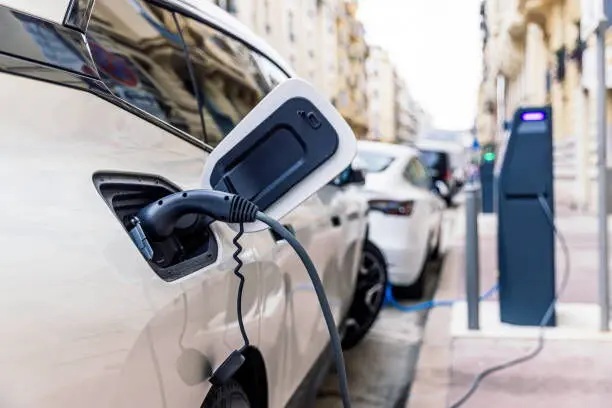Introduction
Topper Company, a leading EV charger manufacturer in China, delivers dependable electric vehicle charging stations and comprehensive solutions.
The electric vehicle (EV) revolution is no longer a distant vision — it’s happening now, reshaping transportation, energy use, and sustainability across North America. As EV adoption accelerates, building a reliable and trustworthy charging infrastructure is crucial. At the heart of this effort are metering certification programs like the National Type Evaluation Program (NTEP) and the California Type Evaluation Program (CTEP). These certifications ensure electricity is measured and billed accurately at commercial EV charging stations, fostering consumer confidence vital for widespread EV adoption.
For both drivers and charge point operators (CPOs), understanding NTEP and CTEP is essential. These certifications govern not only technical accuracy but also shape the charging experience—from plugging in to payment transparency and receipt clarity. This article unpacks what NTEP and CTEP mean, why they matter, and their impact on today’s commercial EV charging landscape.
What Is NTEP?
The National Type Evaluation Program (NTEP), managed by the National Conference on Weights and Measures (NCWM), certifies that commercial weighing and measuring devices—including EV chargers—meet the standards set by the National Institute of Standards and Technology’s Handbook 44 (NIST HB 44).
NIST HB 44 is a comprehensive technical manual covering devices from gas pumps to grocery scales, now extended to EV chargers. The core goal: protect consumers by guaranteeing they pay exactly for the electricity they receive. This means the kilowatt-hours (kWh) displayed and billed must be measured with verified accuracy.
Though NTEP has served other industries for decades, its application to EV charging is recent. As of January 1, 2025, most U.S. states have adopted or are adopting HB 44 requirements for EV chargers. Commercial chargers that bill customers by electricity usage must be NTEP-certified—covering public, workplace, and retail locations. Chargers providing free electricity (e.g., employee perks) do not require certification.
California’s CTEP: A State-Level Benchmark
California operates its own, more stringent program—the California Type Evaluation Program (CTEP), overseen by the Department of Food and Agriculture’s Division of Measurement Standards (DMS). CTEP enforces the state’s rigorous consumer protection laws on commercial measuring devices.
Given California’s leading EV market, CTEP certification shapes industry standards nationwide. Since January 1, 2021, all new Level 2 AC chargers must be CTEP-certified; since January 1, 2023, the same applies to new DC fast chargers. Certification involves rigorous lab testing, field inspections, and ongoing re-certification to ensure lasting accuracy and reliability.
Why These Certifications Matter
NTEP and CTEP may seem like technicalities, but they underpin consumer trust. Transitioning from gas pumps to electric plugs requires assurance that every cent spent matches the energy delivered.
These programs guarantee:
- Customers pay solely for energy received.
- Measurements are consistent and reliable across brands and networks.
- Pricing is transparent and clearly displayed.
- Receipts detail energy usage, rates, and fees for accountability.
This prevents fraud, reduces billing disputes, and boosts confidence—especially as EVs move beyond early adopters to mainstream drivers.
Key Requirements for Certified Chargers
To gain and maintain certification, EV chargers must:
- Clearly display pricing (including peak/off-peak rates) before sessions start.
- Show real-time cost and energy delivered during charging.
- Ensure accurate, field-testable metering within strict tolerances.
- Maintain pricing calculations during outages to avoid billing errors.
- Label key specs like maximum power output.
- Provide detailed, itemized receipts for each session.
Together, these create a standardized, trustworthy experience, minimizing customer complaints.
CTEP’s Influence on User Experience
Certification extends beyond accuracy to the overall charging interaction:
- Seamless Payment Integration
- Drivers expect varied payment options—from RFID cards and apps to credit cards. Chargers must support protocols like Open Charge Point Protocol (OCPP) for interoperability, ensuring smooth transactions and customer satisfaction.
- Intuitive Interfaces
- Displays must remain readable in all weather and lighting, with DC fast chargers featuring high-definition screens showing charging status, estimated completion, and local info.
- Lower Downtime and Maintenance Costs
- Certified chargers offer remote diagnostics and over-the-air firmware updates, enabling quicker fault resolution and reducing costly site visits. OCPP-compliant units are estimated to resolve faults 40% more efficiently.
Benefits for Charge Point Operators (CPOs)
Though certification entails upfront costs, it yields lasting advantages:
- Regulatory compliance to avoid fines.
- Enhanced customer trust through transparent billing.
- Competitive edge signaling quality and reliability.
- Future-proofing to meet evolving regulations without costly retrofits.
The Certification Process
Certification is ongoing and includes:
- Prototype evaluation via lab testing.
- Field testing under real-world conditions.
- Official certification issuance by NCWM or California DMS.
- Routine re-verification with inspections and recalibrations.
CPOs should partner with pre-certified manufacturers to streamline deployment and compliance.
A Global Perspective
Beyond the U.S., regions like the European Union mandate kWh-based billing and pricing transparency. Countries like Germany enforce strict calibration laws. Global harmonization of standards could simplify EV charging for international travelers and reduce manufacturing complexity.
Final Thoughts: Building Trust for a Sustainable Future
EVs represent more than clean vehicles—they’re catalysts for transforming energy and transportation ecosystems. Programs like NTEP and CTEP may be behind-the-scenes, but they are foundational pillars ensuring fairness, accuracy, and transparency.
For drivers, these certifications offer confidence that every kWh paid is delivered. For operators and manufacturers, they establish a trustworthy, level playing field. As more states adopt these standards, metering accuracy will remain a critical commitment to a cleaner, fairer transportation future for all. Learn more about Google SEO.





Comments